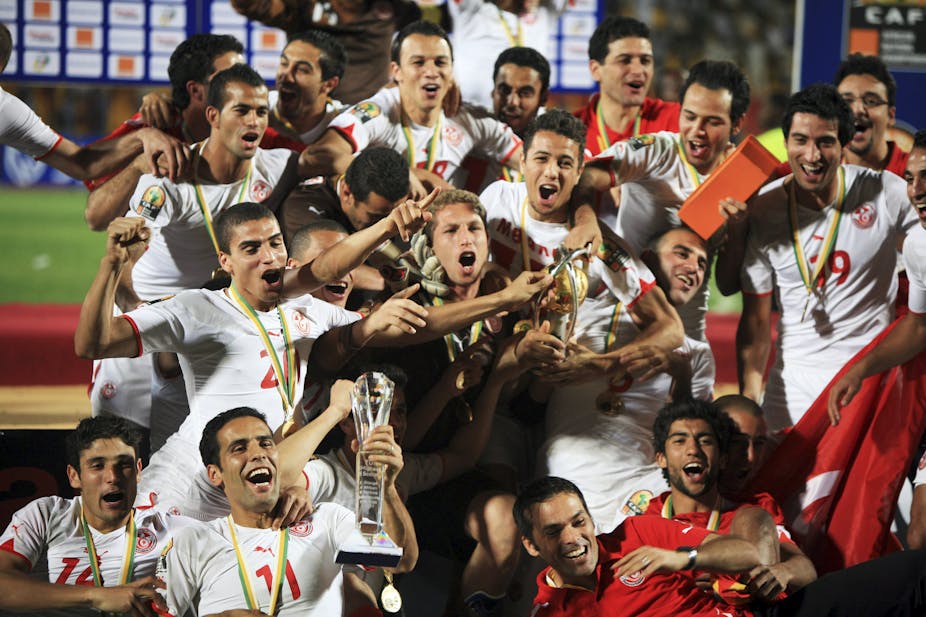It’s been nearly four years since Kenya won the right to host the 2018 African Nations Championship (CHAN). Yet it is now clear to the Confederation of African Football (CAF) that the country is not, and will not, be ready to host the event in January 2018.
This failure to get ready in time is bad for the tournament’s reputation, the Confederation of African Football and Kenya. It also undermines the domestic leagues that it’s intended to boost – particularly those in the host nation.
The Confederation of African Football’s decision to strip Kenya of the right to host the tournament is a terrible indictment of the country. Given the political turmoil over the presidential election impasse, Kenya needed an image makeover that a successful international sports event would have brought. The loss of hosting rights hurts Kenya’s national economy, the football development agenda, the country’s hospitality industry and even national morale at a time when confidence is badly needed.
Strengthening African football
The African Nations Championship is a tournament for players who play in Africa. It’s different from the Africa Cup of Nations, which is dominated by those who play in overseas leagues. The two tournaments are played in alternate years.
The idea is to strengthen national competitions, which were weakened by the exodus of top class players to more lucrative leagues abroad. The African Nations Championship is an opportunity for home based players to show their talent.
Next year’s event is the fifth edition of the championships. Sixteen countries are scheduled to compete between January 4 and February 8 next year. This will have to change, given that a new host – probably Morocco or South Africa – must prepare at such short notice.
Kenya’s lack of preparedness and the loss of hosting rights are worrying because the championship is still growing in reputation. The country stood to gain a great deal by successfully hosting the event. It’s going to take a major public relations push for Kenya to repair this damage.
The whole spectacle is reminiscent of 1996 when Kenya lost the right to host the Africa Cup of Nations because it wasn’t ready. Playing facilities were found to be below standard. This failure hurt the country and its football activities. Allowing this to happen twice is a disaster.
So much undone
Football Kenya Federation President Nick Mwendwa had insisted the country was ready. He was obviously wrong.
Work has been ongoing at four of the event’s five stadiums. There are three venues in and around the capital, Nairobi, and one each to the east and west of the capital. Apart from the Moi International Sports centre, which was upgraded to host the World Athletics Under-18 Championship this year, the stadiums are far from ready.
Each must meet Confederation of African Football requirements: specialised lighting systems for live TV coverage, at least four changing rooms, media facilities, a referees’ room and a room for anti-doping tests.
The preparedness of Kenya’s own national team is another concern. If the facilities are not in place, how was the team getting ready to play in the tournament? How could promotion and marketing of the event begin when the country was even not sure the Confederation was going to give them the final nod?
This debacle has been a study in poor planning and execution.
Distracted by elections
Kenya’s last minute rush could not have come at a worse time. The country has been in election mode for most of the past year. It has been caught up in political uncertainty after the Supreme Court annulled the outcome of the August poll and set a date for new presidential elections. County governors and management responsible for upgrading stadiums have been more focused on re-election.
It was no surprise, then, when the Confederation of African Football postponed a scheduled inspection tour of Kenya. This was a signal that all was not well.
Building a brand
Kenya has built a strong brand in sport on the field and track. The country hosted the 4th All Africa Games in 1987. More recently, Nairobi was praised for hosting the World Under-18 Athletics Championships.
Successful hosts gain useful advantages: increased investment in facilities, increased media visibility, more tourists and improved transportation networks. Public enthusiasm for the sport can also get a boost. And if the host team succeeds, there can be a feeling of enhanced national excitement, patriotism and identity.
The championship was a perfect opportunity to elevate the brand of the national football team, the Harambee Stars. Prior to 1996, Kenya qualified for AFCON three times in a row (1988, 1990 and 1992). Since the 1996 suspension, it has qualified only once. This was in 2004 in Tunisia. Hosting would have given Kenya a shot at an African Football Championship without having to qualify on the field of play. It would also have laid the foundation for qualifying for AFCON and even the now expanded World Cup in the foreseeable future.
This second cancellation is a huge disappointment to the sporting fraternity across the the East African region and the whole world that has always looked at Kenya as Africa’s trailblazing superpower in sporting matters.

